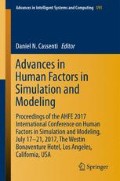Abstract
This study aims to introduce a knowledge management (KM) incentive system that induces both monetary and social incentives; probe into the human decision-making nature and attitude towards risks and uncertainty; elucidate the causality between agent’s KM motives at microscopic level and organizational outcomes at macroscopic level through strategic individual efforts and social interactions; and unfold the dynamic interplays between intangibles and tangibles. We firstly designed an organizational KM conceptual model with induced monetary incentives that feature: high risk high return for independent effort on innovation (creating new knowledge); low risk low return for dependent effort on imitation (acquiring shared knowledge); and a knowledge bonus which is contributed by collective cooperation and divided based on individual knowledge uniqueness level. Since risks and uncertainty are incorporated, agents have to utilize bounded rationality, psychologically reason upon equal expected utilities, and form strategies when facing two dilemmas: risk seeking vs. loss aversion and competition vs. cooperation. Secondly, we developed a gaming software and implemented the KM model in behavioral experiments to trace the endogenously evolving choices of agents under exogenous policies, capture the dynamic interactions, and observe the emergent properties at macroscopic level through iterations. On top a baseline control setting, three treatments with different interventions were carried out and compared against the baseline. With the empirical evidence obtained, the proposed KM incentive system demonstrated fairness, practicability, and effectiveness. Thirdly, we implemented the KM model into agent-based simulation for systemic prediction and optimization. Through combining the behavioral experiments and agent-based simulation. The microscopic human factors in organizational knowledge management are explored in-depth and the impact on the macroscopic organizational outcomes is revealed and elucidated.
Access this chapter
Tax calculation will be finalised at checkout
Purchases are for personal use only
References
Payne, A.F., Storbacka, K., Frow, P.: Managing the co-creation of value. J. Acad. Mark. Sci. 36(1), 83–96 (2008)
Addicott, R., McGivern, G., Ferlie, E.: Networks, organizational learning and knowledge management: NHS cancer networks. Public Money Manag. 26(2), 87–94 (2006)
Drucker, P.F.: Managing in a Time of Great Change. Harvard Business Press, Brighton (2009)
King, W.R.: Knowledge management and organizational learning. Springer, US (2009)
Herzberg, F., Snyderman, B.B., Mausner, B.: The Motivation to Work. Wiley, Hoboken (1966)
Whyte, W.F.: Money and motivation. Harper, New York City (1955)
Liebowitz, J., Megbolugbe, I.: A set of frameworks to aid the project manager in conceptualizing and implementing knowledge management initiatives. Int. J. Proj. Manag. 21(3), 189–198 (2003)
Simon, H.A.: Administrative behavior: a study of decision-making processes in administrative organization (1957)
Kahneman, D., Tversky, A.: Prospect theory: an analysis of decision under risk. Econometrica: J. Econometric Soc. 263–291 (1979)
Armstrong, M.: Employee Reward. CIPD Publishing, Wimbledon (2002)
Dalkir, K., Liebowitz, J.: Knowledge Management in Theory and Practice. MIT Press, Cambridge (2011)
Kollock, P., et al.: The Possibility of Cooperation, 672–676 (1992)
Hardin, G.: The tragedy of the commons. Ekistics, 168–170 (1969)
Sweeney, J.W.: An experimental investigation of the free-rider problem. Soc. Sci. Res. 2(3), 277–292 (1973)
Cabrera, A., Cabrera, E.F.: Knowledge-sharing dilemmas. Organ. Stud. 23(5), 687–710 (2002)
Gu, J., et al.: Simulation of an organization as a complex system: agent-based modeling and a gaming experiment for evolutionary knowledge management. In: Kaneda, T., Kanegae, H., Toyoda, Y., Rizzi, P. (eds.) Simulation and Gaming in the Network Society, pp. 443–461. Springer, Singapore (2016)
Acknowledgements
The research work was funded by Grants-in-Aid for Scientific Research (#15J07801) of Japan Society for the Promotion of Science, Tokyo, Japan. The authors would like to express their sincere gratitude to the great support.
Author information
Authors and Affiliations
Corresponding author
Editor information
Editors and Affiliations
Rights and permissions
Copyright information
© 2018 Springer International Publishing AG
About this paper
Cite this paper
Gu, J., Huang, JP., Chen, Y. (2018). A Preliminary Study of Human Decision-Making, Risk Attitude, and Social Preference on Knowledge Management. In: Cassenti, D. (eds) Advances in Human Factors in Simulation and Modeling. AHFE 2017. Advances in Intelligent Systems and Computing, vol 591. Springer, Cham. https://doi.org/10.1007/978-3-319-60591-3_27
Download citation
DOI: https://doi.org/10.1007/978-3-319-60591-3_27
Published:
Publisher Name: Springer, Cham
Print ISBN: 978-3-319-60590-6
Online ISBN: 978-3-319-60591-3
eBook Packages: EngineeringEngineering (R0)

